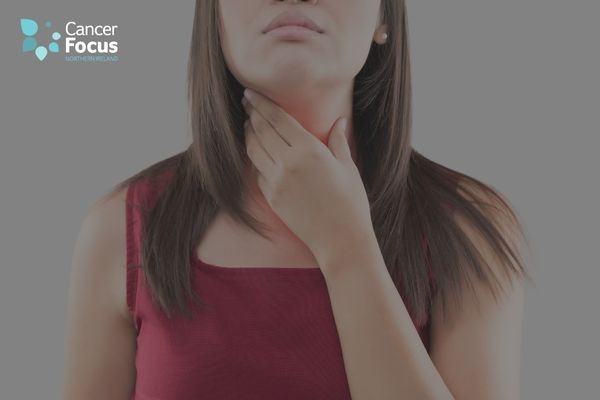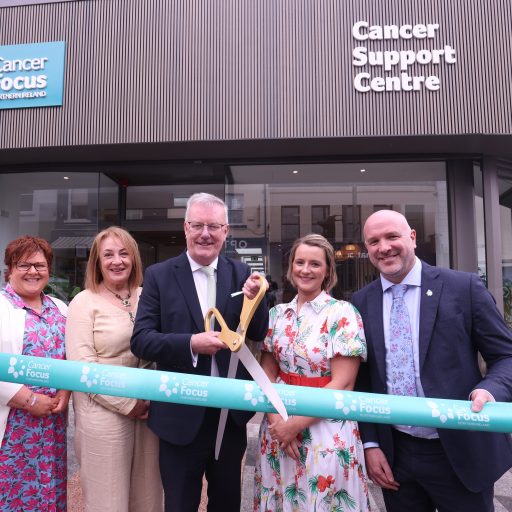
Late-stage diagnosis for Head and Neck Cancers increases – as Covid caused early dental referrals to plummet
‘Too many cases of head and neck cancers are being diagnosed at a late stage in Northern Ireland, resulting in poorer prognosis and higher mortality’, Cancer Focus NI and The British Dental Association have warned.
Joining forces during Mouth Cancer Awareness Month in November, both organisations are calling for full implementation of the Northern Ireland Cancer Strategy, specifically a commitment to raising public awareness of the risk factors, early signs of mouth cancer and the importance of regular dental check-ups for those at risk.
Newly collected data shows that late-stage tumours (T3/T4) increased from 33.76% of 470 cases in 2019 to 41.47% of 371 cases in 2020.The number of referrals in 2020 reduced by 22.1%, which points to the significant impact the COVID-19 pandemic has had on head and neck cancer presentation here. Additionally, the number of people diagnosed with oral cancer in Northern Ireland has increased by more than 80% between 1993 and 2018, with the relative increase being greater among women than men.
Professor Gerry McKenna, Chair of BDA NI Hospitals Group said: “The data confirms the significant impact the COVID-19 pandemic has had on reduced Head and Neck cancer detection and referrals, and later-stage diagnosis in the wake of what has been traditionally a less than optimal picture by way of detection and diagnosis”.
“It’s important we put this into context. A large proportion of our Head and Neck Cancer patients are not patients who are struggling to attend their general dental practice – they are people who do not (and have never) engaged with health services generally, hence the history of late presentation”.
Early detection is key. Dentists perform a head and neck cancer screen at all patient check-ups and review appointments. Registered patients will be given an urgent appointment if they notify their dentist about any changes in their mouth which may correspond with oral cancer.
BDA and Cancer Focus NI are warning that the situation could get worse before it gets better, with Dervilia Kernaghan, Director of Services at Cancer Focus NI, commenting, “Cancer Focus NI’s health improvement services emphasise the importance of checking for signs and symptoms of cancer. If mouth cancer is spotted early, the chances of a complete cure are greatly increased. When cancerous lesions are small, treatment is generally less complicated and more effective. It’s vitally important that you go to your dentist or GP if you notice any worrying symptoms as soon as possible, which can include pain in the mouth or earache that persists, a lump in the neck, or difficulty or pain with chewing, swallowing, or speaking.
Dervilia continued: “The Cancer Strategy identifies attendance for routine examination and care as an ideal time for ‘opportunistic’ screening. With cancer incidence rates much greater in areas of high deprivation, all our population needs access to vital dental services. Later this month, our charity will host up to 100 patients and carers at our Head and Neck Cancer Support and Information Day. A common theme from this event will be the need for fewer barriers in the way to detection, referral, and diagnosis. Now more than ever, we call on our local Government to find urgent solutions to a very immediate threat in Northern Ireland”.
For more information on mouth cancer visit www.cancerfocusni.org/mouthcancer.
Cancer Focus NI offers a range of support services including counselling and art therapy. To find out how we can help visit www.cancerfocusni.org/support. If you are concerned about cancer you can call the free Cancer Focus NI Nurse Line on 0800 783 3339 (Monday, Wednesdays and Fridays, 9am to 1pm) or email nurseline@cancerfocusni.org.
Symptoms of mouth cancer include:
- An ulcer on the lip, tongue or in the mouth that doesn’t heal within three weeks
- Pain in the mouth or earache that persists
- A white or red patch in the mouth that doesn’t go away
- A lump or thickening in the mouth, throat or on the lip
- Difficulty or pain with chewing, swallowing or speaking
- Bleeding or numbness in the mouth
- A lump in the neck
- Loose teeth for no obvious reason
- Weight loss over a short space of time
Lifestyle factors which increase the risk of mouth cancer include:
- Smoking or chewing tobacco
- Regularly drinking large amounts of alcohol, especially spirits
- Over-exposure to sunshine or use of sunbeds
- Human Papilloma virus







